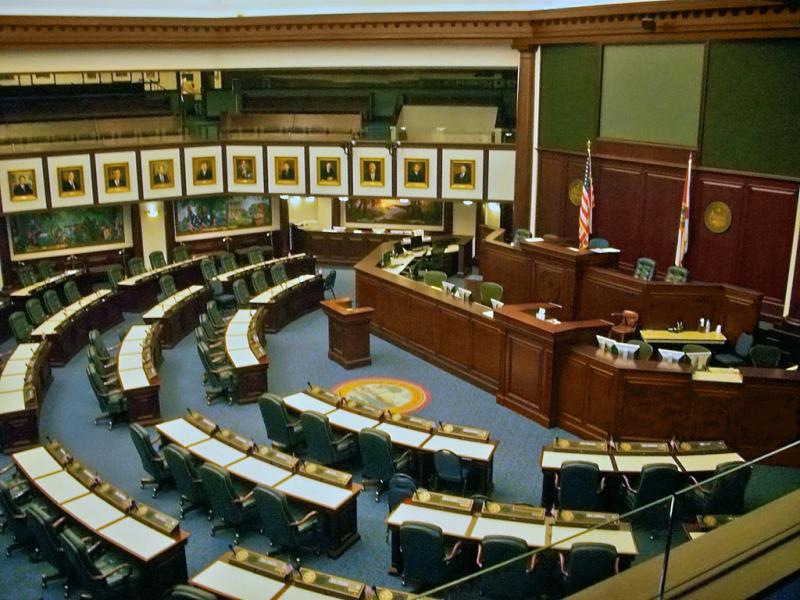
Under the leadership of new Governor Ron DeSantis, Florida’s 2019 legislative session resulted in some key wins, as the Sunshine State continued to keep pace as one of the most taxpayer-friendly states in the nation.
The headline-grabbing victory is passage of a criminal justice reform package, the first major reforms passed in Florida in decades.
The Florida First Step Act introduced by Senator Jeffrey Brandes in January capitalized on the momentum of the federal FIRST STEP Act, signed late last year by President Trump. The bill was built around incentivizing people in the prison system to train and prepare to reenter society as productive citizens. The vast majority of people in prison will be released one day, ensuring they can contribute and thrive afterwards improves public safety.
The initial package included sentencing reforms, allowing judges to deviate from mandatory minimum sentences that often put away people for inordinate periods of time for nonviolent, drug-related crimes.
In the end, these reforms were lost in the House. Still, the legislation was the broadest reform package passed in 20 years. In addition to reentry programs, it reduces barriers to occupational licenses, and limits driver’s license suspensions.
This is a very promising sign the dam has finally broken on criminal justice reform in Florida, and more progress can be made next session.
There is plenty more for taxpayers to be happy about.
A measure requiring a two-thirds majority popular vote for local governments to increase sales taxes via ballot referenda passed. The legislation, HB 5, also requires the vote to be held on a general election day, not a primary day. This is a big win for local taxpayers, ensuring their voice is heard when their tax dollars on the line, and potentially avoiding many tax increases across Florida communities in the future.
Also with an eye on local governments: the legislature passed a bill to protect consumers against localities attacking plastic straws, HB 771. Plastic straw bans have become popular, despite little evidence they help the environment, and plenty of evidence they hurt area jobs and businesses.
Get ready to freely ride your electric scooters following passage of HB 453. Florida will now put into place sensible statewide rules to define and regulate scooters, which should avoid a patchwork of damaging local government regulation.
On the health care front, Floridians will get more options and innovation. Thanks to HB 21, which repealed the state’s certificate of need requirement, hospitals will no longer need a government permission slip to build or expand.
House Speaker Jose Oliva, who championed the bill, said, “we must get rid of policies like certificate of need, which have only served to create local and regional monopolies.”
Federal tax reform has been a big win across the country, putting money back in Americans’ pockets, driving new job creation, and sparking rising wages. Still, some provisions of federal reform don’t translate to states, and can create new unintended burdens if states conform their codes to the federal tax code. The Global Intangible Low-Taxed Income piece of federal reform is one such measure. Florida legislators smartly acted to avoid charging businesses this federally-focused tax at the state level with HB 7127.
Often defeating bad ideas is the most important thing lawmakers can do to protect taxpayers. Renewable energy mandates cost everyone more money through higher energy costs and subsidies for favored energy sources. Still, these misguided measures have been spreading across the nation. Florida lawmakers however smacked down bills to impose these mandates in Florida, defeating HB 1291/SB 1762.
Governor DeSantis deserves credit for spearheading a major occupational licensing reform effort as part of his “Deregathon.” This plan would have addressed on the few areas of free market policy where Florida has not been a leader. Unfortunately, the legislation (SB 1640) did not pass before the clock ran out, but the Governor’s efforts should earn more support next time.
The session certainly was not perfect, with the notably disappointing passage of legislation that would open the door to imported Canadian medicine – and price controls with it. Still there are many more positives to point to.
DeSantis also signed House Bill 7123 on Wednesday, which will reduce the tax on commercial leases in the Sunshine State. The bill calls for a .2% reduction in the commercial lease tax for renters, dropping the rate from 5.7% to 5.5%.
DeSantis said in a press release Wednesday, “I’m pleased to be signing HB 7123 today, which includes temporary tax relief to help the people of Northwest Florida. Statewide, we remain committed to ensuring that communities impacted by recent hurricanes are able to make a full recovery.” H.B. 7123 is projected to save taxpayers nearly $65 million annually, according to the Gov.
Governor DeSantis and Florida Senators and Representatives deserve credit for their successes this session – and an openness to pursue new reforms. The Sunshine State has new leadership that is keeping it around the head of the class among the states.

